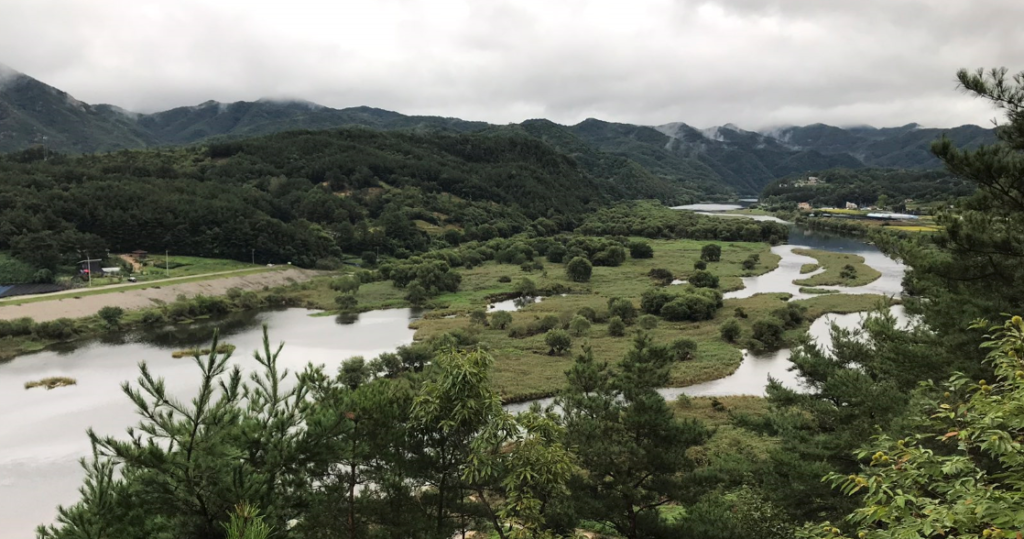The training on rapid assessment of wetland ecosystem services held in Geumsan county brought together 35 participants of local residents, wetland interpreters, and citizen scientist to appreciate values of Cheonnae wetland located in Geum-river watershed.
Geumsan is located in the southeast of Chungcheongnam-do(province) in the central part of Korea and Chunnae wetland is an inland riverine wetland containing rich biodiversity and undisturbed ecosystem connected to nearby mountains. Geumsan is also very well-known for its 1,500-year-old history of Korean Ginseng production in basins surrounded by panoramic mountain ranges and meandering rivers, and recently became a Globally Important Agricultural Heritage System (GIAHS) site.
Local communities are interested in designating Cheonnae wetland as a legally protected area and a newly adopted tool of RAWES (Rapid Assessment of Wetland Ecosystem Servies) by Ramsar Convention was utilized to appreciate the importance of wetland ecosystem services.
Funded by Geumsan municipality and Chungnam provincial government, ESP Asia Regional Office organized the ES training and shared its outcome during the Geumsan ES Forum in the county. The training and related forum supported the public-private partnership for wetland conservation emphasizing the roles of local communities and a comprehensive research willfollow to analyze its ecological systems.

